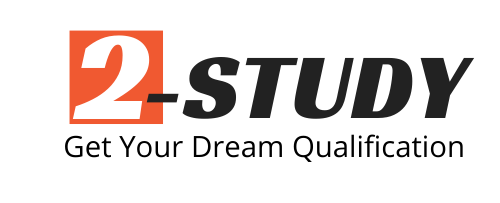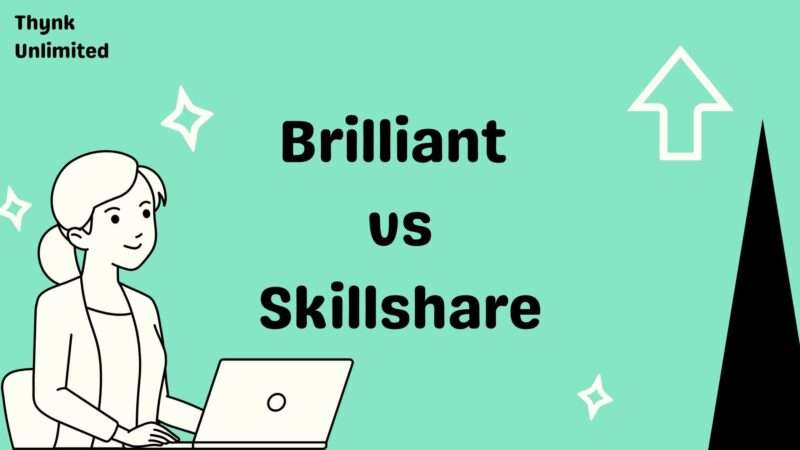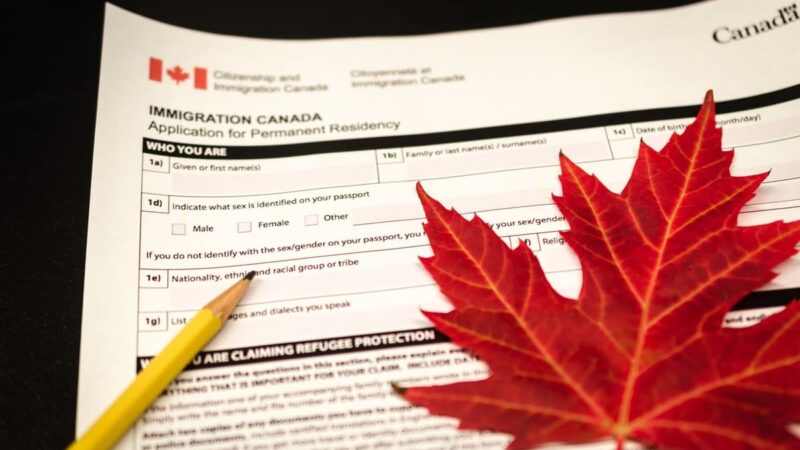How to Work and Get PR with 1+1 Year Course in Canada

Your future plan is to study a 1+1 year course in Canada. That means you plan to study 2 programs and the duration of each program is one year. But why do people study the 1+1 program in Canada?
Well, with the completion of two years of academic studies, you will be eligible for a 3-year post-graduate work permit or PGWP. This PGWP allows you to work full-time in Canada.
With PGWP, you can stay and work in Canada after your studies. After gaining 12 months of work experience in Canada, you can apply for an immigration program.
How to study 1+1 course in Canada?
To study 1+1 year course in Canada, you have two options:
- You can apply for two programs at the same time. You will get a study permit with a duration of two programs.
- You can complete the first program and later apply for the second program. The duration of your study permit will be according to your first program of study. Later you need to apply for an extension of your study program.
Education institution
The first thing that you need to know is that if the institution allows you to apply for two programs.
It means there are institutions that let you enroll in two programs right away. It really depends on the institution.
Open for application
The second thing that you need to know about applying for two programs make sure that the two programs that you chose are open for application. But if not, choose another program that is open for the admission application.
Work in Canada as international student
When you can work as an international student in Canada?
You can work as an international student in Canada, if
- you have a valid study permit
- you are a full-time student
- you study in a Designated learning institute
- you study post-secondary academic or professional training program
- your course leads to a degree, diploma, or certificate
- the duration of your program is at least 6 months
When you cannot work as an international student in Canada?
You cannot work as an international student in Canada, if
- your study permit has expired
- you are a part-time student
- you do not study at a Designated learning institute
- you study general interest program of study such as ESL/FSL courses for self-improvement
- you study a prerequisite course to enroll in your study program
Can you work between 1+1 course in Canada?
You have completed your first program and waiting to join your second program of study. Instead of sitting idle, you wish to work.
Well, you can work full time between 1+1 course. The requirements to work full time before the start of your new program are as follows.
- you received written confirmation of program completion
- You have received a new letter of acceptance and the new programs start within 150 days receiving notification of previous program completion
- you submitted the application for extension of your study permit or your previous study permit is still valid.
- You are a full-time student at a designated learning institute
- your second program of study is a post-secondary academic or professional training program
- your course leads to a degree, diploma, or certificate
- the duration of your program should be a minimum of 6 months
According to Canada.ca
“If the new program of study starts more than 150 calendar days after the first date they receive written confirmation of program completion from their current institution, the student is eligible to work off-campus only during the first 150 consecutive days after the first date they receive written confirmation of program completion. “
Study in Canada: 1+1 year program
So you want to study in Canada as an international student.
The first document that you need to obtain is the letter of application or LOA. It is also known as the offer letter or offer of admission.
This is a mandatory document that is required by IRCC to get a study permit or student visa. Therefore, you need to have an LOA before applying for a Canada study permit.
But how to get an LOA? Here are the steps to get a letter of acceptance from a Canadian university for one year program.
Apply for a 1-year program in Canada
Here is the step by step guide to study 1-year program in Canada:
Choose a Designated Learning Institution (DLI)
The first thing that you need to do is to choose a designated learning institution or the DLI.
- DLIs are the schools approved by the territorial or provincial government to host an international student.
So I highly recommend choosing a designated learning institution that offers PGWP or the post-graduation work permit.
- With PGWP, you will be eligible to work after you graduate.
Here how you can check the status of any DLI institute.
Remember: If you study for one year program you will get a one-year post-graduation work permit. On other hand, if you study for two or more years you will get a three-year post-graduation work permit.
- 1-year program= 1-year PGWP
- 2 or more year program= 3 year PGWP
Pro tip: It is highly recommended that you choose a designated learning institution that is offering PGWP. So that you can work after studying in Canada. Also, there are some other conditions that you must fulfill to get PGWP.
You can find here the complete list of requirements to get PGWP.
Choose a program
The next thing that you need to do is to choose a program.
You need to pick a program that you intend to study. It might be related to your previous course. It can also be related to your work experience the passion that you really wanted to pursue.
- Remember that in the letter of explanation for your study permit, you need to explain and defend why did you choose this program.
And to help you write a successful letter of explanation or LOE, I have provided samples of LOE from students who study in Canada.
Complete the application form
After choosing a DLI and a program, the next thing that you need to do is to complete the application form. The application form is usually on the website of your chosen DLI.
- Make sure that you choose and complete the application form for the international student.
Some of the common steps required in completing the application form are as follows:
- Checking the application admission or deadlines for international students
It means to say that your chosen program is also available in your DLI application. And the same thing for the deadlines. If there are specific deadlines that you need to submit.
- Another one is setting up an online student profile in the institution’s student portal.
Alright, you already chose a DLI and program. You also completed the application form.
Now the time is to fulfill admission requirements.
Fulfill admission requirements and documents
Disclaimer: I will be providing you the usual and general requirements. Each college and university in Canada has different admission requirements. And the admission requirements vary from course to course.
- Pro tip: Visit the admission page on the university website and carefully note down the requirements for your selected course.
- Recommended: Prepare required documents in advance. When the institute requests them, you are prepared and you can submit them to their office. Submitting documents also depends on your designated institute.
- You can submit or upload your documents to the student application portal. In some cases, your DLI can also ask you to submit through their email to their specific office or department. Here you need to contact the enrollment office or the admission department for you to know more about the details of the application requirements.
Documents required for a one-year program in Canada are as follows:
Academic documents (Transcripts/certificates/etc)
The first document that you need to provide as a requirement is the academic records. It can be the official transcripts or grades, certificate of completion, or your diploma.
Depending on the university you may also be asked to submit your high school or secondary education certificate.
Passport copy
The next requirement is your passport. Here you will be providing a scanned copy of your passport specifically the biodata page of your passport.
- Resume and the certificate of employment
The next requirements that they might request from you are the upgraded resume and the certificate of employment.
English test
The next admission requirement is your English test. You can take IELTS or CELPIP.
Take note that the English test actually depends on the program that you will be taking and also it will depend on the institution. There are institutes where the admission depends on your English test sc
But you need to provide a certification or a letter of English as a medium of instruction. This letter should be certified by your previous school, college, or university.
I also wrote an article about low tuition fees and the cheapest colleges in Ontario for both with and without IELTS.
I also want to add that the English test also depends on the type of your study permit application. If you chose a DLI that does not require an English test. But you are planning to apply for Canada’s study permit under SDS or the student direct stream, you must take the IELTS exam. As it is one of its requirements. You can check different types of study permit applications with pros and cons. What type of student application is a better regular stream or student direct stream SDS?
Notarized translation
The last document for your admission requirement that your DLI required to submit is the notarized translation.
If you have documents that are written or typed in your own language. Your DLI might also recommend you submit these documents to be notarized and translated as well.
Pay the fee
Once you’re done choosing a program completing the application form and gathering all of the documents. The next thing that you need to do is to pay for the application or admission fee.
- The range of the letter of acceptance and admission fee is roughly from 75 to 500 dollars.
Again it varies from institution to institution. The cost of their admission fee or the letter of application. You need to contact them for you to know the exact amount. And how will you pay for your admission fee?
Letter of acceptance
After paying the fee, you will wait for the letter of acceptance. The processing time of the letter of acceptance varies from university to university.
Usually, you will receive an official letter of acceptance from the university one or two months after applications have closed.
Here is the estimated time of some universities in Canada:
- Algonquin College: Within 30 working days.
- Cambrian College: Within 10 weeks.
- Camosun College: Within 10 working days
- Canadore College: Within 2 weeks.
- Conestoga College: Within 7 working days.
- Confederation College: Within 7 working days.
- Douglas College: Within 1 or 2 weeks.
- Durham College: Within 7 working days.
- Fanshawe College: Within 2 or 3 weeks.
- George Brown College: Within 4 to 5 weeks.
- Langara College: Within 10 to 15 working days.
- Niagara College: Within 3 weeks.
- Seneca College: Within 4 to 5 weeks.
- Sheridan College: Within 4 weeks.
- St. Lawrence College: Within 10 weeks.
- Lambton College: Within 7 working days
Pro tip: To increase your chances of being accepted, you should submit your application 8 to 12 months before courses start.
Apply for a study permit
Here is the complete guide to help you apply for a study permit online: Apply for Canada study permit online: Step by Step
Documents required for a study permit
- Letter of acceptance
- Financial support documents
- Passport & Digital photo
- Letter of explanation
Tutorial: How to apply for a Canada study permit online?
- Go to the official website
- Create IRCC account with GC Key
- Start new application
- Complete a personal reference code
- Complete and review your study permit application
- Upload required documents
- Pay your fees and submit
Apply for the second program
Once you come to Canada and completed your one-year program. Then you decide that you want to get another program. You need to extend your study permit to study for the second program.
But when to apply for a new program?
Applying for a new program the earlier the better.
You can follow the exact steps mentioned above to apply for the second program 1-year course. After application, you get a letter of acceptance. Use this letter to extend your study permit. This leads to our next topic. How to extend study permit in Canada.
Pro tip: Apply for a new program at least 30 days before your study permit expires.
Also, make sure that your passport doesn’t expire at the same time. It is because you cannot extend your study permit beyond your passport’s expiry date.
Extend your study permit in Canada
You can apply it online as it is faster processing. You can view the online application and step-by-step guide here. Study permit extension online application in Canada
Here are the steps to extend your study permit.
Create a My CIC account
You create a new CIC account and you can also use your previous CIC account.
Gather all the documents
Since you will be applying for a new program you need to secure a new letter of acceptance.
The second one is the proof of financial support or the POF. The POF confirms that you have enough funds to support your studies and your cost of living for one year. You must show that you have at least 10,000 Canadian dollars for the student alone.
Aside from the LOA and the POF, you need to provide a scanned copy of your Bio data page again.
Reminder: I just want to remind you that your study permit will not be issued past your passport expired date. If your passport will expire soon, renew it as early as possible.
You also need to provide a digital photo and letter of explanation. In the letter of explanation, you will indicate the purpose of your application issues that you would like to clarify.
You also need to give your Biometrics (if applicable) and lastly the medical examination. If you have been studying in Canada for 12 months you don’t need to provide a medical exam.
Your medical exam is compulsory if you would like to work in a job that will bring you close to other people like the patient, the elderly, and even children. This includes public health, sciences, and agriculture-related fields. For example health workers, primary and secondary school teachers.
Fill the application form
Once you already gathered, all of your documents you needed to do is to fill out the application form. Your application form is an important part of your study permit extension.
Missing or incorrect information can negatively affect the outcome of your extension of a study permit. And make sure that you will download the newest application form.
Upload your documents and pay the fee
Once done filling out the application form that’s the time that you will be uploading all of your documents to your CIC account. And after that, you need to pay 150 Canadian dollars for your study permit extension.
Processing time of study permit extension
The processing time will take 59 days for your study permit extension. As I have mentioned apply for an extension of your study permit as early as possible.
Recommended:
Work in Canada after studies: Postgraduate work permit
You have completed your studies and wish to stay in Canada and work. The post-graduate work permit is a perfect way to start your career in Canada. And ultimately get your permanent residence.
Postgraduate work permit was specifically designed for international students. It allows you to stay in Canada after your studies. And work up to three years after you graduate.
A postgraduate work permit is an open work permit. This means it authorizes to work for any employers in any position in any location in Canada. Sounds pretty good. Right!
Postgraduate work permit eligibility requirement
So what you need to be eligible for PGWP?
In order to be eligible, you have to meet the following requirements.
- You have to be 18 years old or older
- You have to have completed a program of study in Canada that lasted at least 8 months of full-time studies
- The program of study must be completed at a designated learning institution
- You must apply within 180 days of the last day of your study program
seems pretty forward. Right!
Just make sure you apply within 180 days window.
Pro tip: If you are applying from inside of Canada, be sure that your status in Canada hasn’t expired before you apply
What is the duration of PGWP after the 1+1 year program?
Generally, the work permits are valid for between 8 months and three years. And PGWP will not be granted for a duration longer than the duration of your study program.
In the case of 1+1 course in Canada, you have completed two programs with a duration of 1 year each. You are eligible for 3 years postgraduate work permit.
- 1 year degree + 1 year Diploma/PG certificate (gap less than 2 years) = 3 year PGWP
- 1 year Diploma/PG certificate + 1 year degree (gap less than 2 years) = 3 year PGWP
How PGWP helps you get PR in Canada?
Another great benefit of PGWP as they are an excellent stepping stone in the path to becoming a Canadian permanent residence.
While PGWP is a temporary permit, gaining Canadian work experience often makes a person eligible for a permanent residence immigration program.
For example, one of the most popular options for grain Candian permanent residence is the Canadian experience class or CEC. This the program that aligns with express entry.
In order to be eligible for CEC, you have to complete 12 months of full-time skilled work in Canada. And the post-graduate work permit can help you do that.
Become permanent residents of Canada
The government of Canada uses a point-based system known as Express Entry. The purpose of express entry to invite skilled workers to become permanent residents of Canada.
Express entry is highly competitive. Initially, you have to meet the minimum eligibility requirements for your program of choice. You can check this guide to learn more about the Canadian Express Entry process.
There are three immigration programs under express entry namely:
- Federal Skilled Worker Program.
- Federal Skilled Trades Program.
- Canadian Experience Class.
Note: Migrate to Canada with their family members and their loved ones with the Federal Skilled Worker Program or the FSW.
Canada Experience Class
The CEC or Canadian Experience Class is a great option for those of you who are already in Canada working and want to extend your stay permanently.
CEC is an excellent immigration option for those of you who already have Canadian work experience. It allows you to apply for and be granted permanent resident status quickly with relative ease. Plus, you can apply to bring your family with you.
In this case that’s the Canadian experience class, meeting the minimum eligibility requirements allows you to submit a profile to the Express Entry pool. But this does not guarantee your PR status. This is because all express entry candidates are ranked against one another using a points-based system known as the CRS score.
Only the candidates with profiles who have the highest CRS scores will be invited to submit that official application for permanent resident status. Lucky for you, Canadian work experience is one of the most highly valued factors under the CRS.
Eligibility requirement for CEC
So let’s talk about the basic eligibility requirements for the CEC but remember these are just the minimum requirements.
Express entry is competitive. So if you can exceed these minimum requirements, you’ll have an even greater chance of success. There are only two minimum requirements for CEC.
- Work Experience
- Language proficiency
You have to have a minimum of 12 months of full-time work experience that is skilled. And work experience was gained within Canada in the last three years. In order to be considered skilled, your work experience has to be under the category of NOC code zero A or B.
- If you want to know the NOC code for your job check the link: Find your NOC
You also have to show that you are proficient in either English or French.
- If your work experience was claimed at NOC skill level zero or A. Then your language test scores have to be consistent with the Canadian language benchmark of level seven or CLB seven.
- If your work experience was gained at NOC skill level B then your language test scores have to be consistent with CLB 5.
If you meet the minimum eligibility requirements for CEC, you can then create your express entry profile. But remember you need to have a competitive CRS score in order to be selected.
One of the main factors in determining your CRS score is your level of education. So while education is not a minimum requirement for CEC. In order to be competitive under the CRS scoring system, you may want to claim your education.


![Coursera Vs Pluralsight: Which is Best For You? [2024 Updates]](https://www.2-study.com/wp-content/webpc-passthru.php?src=https://www.2-study.com/wp-content/uploads/2023/12/Coursera-Vs-Pluralsight-800x450.jpg&nocache=1)
![Masterclass vs Skillshare: Here are the Key Differences [2024 Update]](https://www.2-study.com/wp-content/webpc-passthru.php?src=https://www.2-study.com/wp-content/uploads/2023/12/Masterclass-vs-Skillshare-800x450.jpg&nocache=1)


